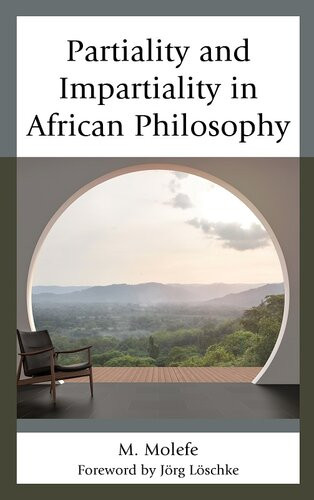

Most ebook files are in PDF format, so you can easily read them using various software such as Foxit Reader or directly on the Google Chrome browser.
Some ebook files are released by publishers in other formats such as .awz, .mobi, .epub, .fb2, etc. You may need to install specific software to read these formats on mobile/PC, such as Calibre.
Please read the tutorial at this link: https://ebookbell.com/faq
We offer FREE conversion to the popular formats you request; however, this may take some time. Therefore, right after payment, please email us, and we will try to provide the service as quickly as possible.
For some exceptional file formats or broken links (if any), please refrain from opening any disputes. Instead, email us first, and we will try to assist within a maximum of 6 hours.
EbookBell Team

5.0
108 reviewsPartiality and Impartiality in African Philosophyfills the lacuna in African philosophy literature on the inherent tension between requirements of partiality (favoritism) and impartiality (equality). Motsamai Molefe deploys two strategies to philosophically resolve the tension between partiality and impartiality. The first strategy involves applying the moral theories of Kwasi Wiredu, Thaddeus Metz, and Kwame Gyekye to the problem. Finding their views useful in some ways and seriously limited in others, Molefe turns to the second strategy in which he invokes the salient normative concept of personhood in African cultures. Molefe argues that the concept of personhood adjoins theories of human dignity and moral perfection (virtue). The major insight that emerges is a robust ethical theoryquapersonhood that accommodates both partiality and impartiality. He grounds requirements of impartiality on human dignity, which operates largely as a macro-ethical concept that normatively informs the character of our social institutions (politics). Politics is characterized by fairness, equality, and impartiality. Partiality (the agent-and-other-centred forms of it) is directly connected with the agent’s chief moral duty to achieve her own virtue (moral perfection), which operates as a micro-ethical concept. These two kinds of moral partialism, self-favoritism and close ties such as family, are justified by appeal to the project's view, instead of the individuals-and-relationships view typically invoked to justify moral partiality in the literature.